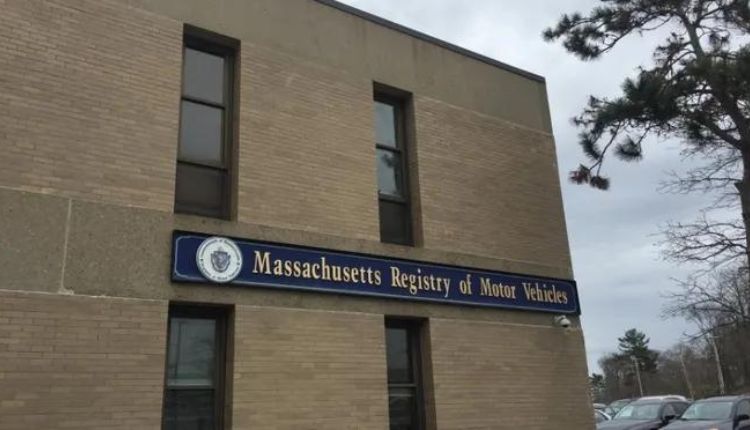Keeping your car safe and roadworthy Grace Period is a top priority for any driver. West Virginia, like many states, requires vehicles to undergo regular inspections to ensure they meet specific safety and emission standards. But what happens if your inspection sticker is about to expire, or you’ve recently purchased a car? Fear not, West Virginia offers a grace period to help drivers get their vehicles inspected without penalty.
This blog post dives deep into the details of the WV vehicle inspection grace period, clearing up any confusion and ensuring you stay compliant with state regulations.
No More Annual Hassle: The New Two-Year Inspection Cycle
As of January 1, 2024, a significant change came into effect for West Virginia vehicle inspections. Previously, inspections were required annually. However, thanks to House Bill 2310, the state transitioned to a biennial inspection cycle, meaning you now only need to get your car inspected every two years. This change aims to streamline the process and reduce the burden on drivers.
Here’s the key takeaway: if your car has a valid inspection sticker, you can breathe easy for the next two years. However, it’s crucial to understand what happens when that sticker nears its expiration date.
The Grace Period Explained: A Short Window for Compliance
West Virginia offers a three-day grace period for vehicles purchased or acquired within the state that lack a valid inspection sticker. This means you have three days from the date of purchase (or acquisition) to get your new car inspected and obtain a fresh sticker.
Important Note: This three-day grace period only applies to vehicles obtained within West Virginia. If you’re bringing in a car from another state, the grace period doesn’t apply. You’ll need to get it inspected immediately upon registration.
Beyond Three Days: Avoiding Penalties
So, what happens if your inspection sticker expires and you miss the three-day window for newly acquired vehicles? Don’t panic! While there’s no extended grace period, West Virginia offers a bit of leeway. Operating a vehicle with an expired inspection sticker can result in a citation, but the state typically focuses on enforcing safety rather than penalizing minor delays.
However, it’s crucial that you understand the potential consequences:
- Citation: Driving with an expired inspection sticker can lead to a citation from law enforcement. The exact fine amount may vary depending on your location and the officer’s discretion.
- Insurance Issues: Some insurance companies may view an expired inspection sticker negatively and potentially raise your rates.
- Safety Concerns: The most crucial reason to get your car inspected is for your own safety and the safety of others on the road. Unidentified problems can pose a serious risk.
Therefore, it’s highly advisable to schedule an inspection as soon as possible after your sticker expires, even if you haven’t received a citation yet.
Staying Compliant: Proactive Measures for WV Drivers
Here are some helpful tips to ensure you stay compliant with West Virginia’s vehicle inspection requirements:
- Keep Track of Your Sticker: Make a note of your inspection sticker’s expiration date on your calendar or phone. This will help you plan ahead and schedule an appointment well before it expires.
- Schedule Early: Don’t wait until the last minute to get your car inspected. Inspection stations can get busy, especially towards the end of the month or year. Scheduling an appointment in advance will help you avoid long wait times.
- Know Your Mechanic: Building a relationship with a trusted mechanic can be invaluable. They can help you understand what’s being checked during the inspection and advise you on any potential repairs needed to pass.
- WV DMV Online Resources: The West Virginia Division of Motor Vehicles (WV DMV) website offers a wealth of information on vehicle inspections, including a list of certified inspection stations in your area. You can visit their website here: https://transportation.wv.gov/DMV/Pages/default.aspx.
Beyond Compliance: The Importance of Regular Maintenance
While WV state inspection near me and you are crucial, they shouldn’t be the only time you take care of your car. Regular maintenance is essential for ensuring your vehicle runs smoothly, safely, and efficiently.
Following your car’s recommended maintenance schedule, as outlined in your owner’s manual, can help prevent costly repairs down the road and contribute to a longer lifespan for your vehicle.
Here are some key maintenance tasks to consider:
- Oil Changes: Regular oil changes are vital for keeping your engine lubricated and running smoothly. The recommended frequency for oil changes can vary depending on your car’s make, model, and driving habits. Consult your owner’s manual for individualized recommendations.
- Tire Rotations and Inspections: Regular tire rotations help ensure even wear and tear, maximizing their lifespan. It’s also crucial to have your tires inspected for proper inflation, tread depth, and any signs of damage.
- Air Filter Replacements: A clogged air filter can restrict airflow to your engine, impacting performance and fuel efficiency. Replacing your air filter according to the manufacturer’s recommendations is essential.
- Brake Inspections: Your brakes are critical for safe stopping. Regular inspections and timely maintenance of your brakes are crucial to prevent accidents.
By following a consistent maintenance routine, you can not only avoid potential inspection failures but also enjoy a safer and more enjoyable driving experience.
Don’t wait until the last minute or after your grace period has expired to get your car inspected. Taking a proactive approach to vehicle maintenance and inspections will ensure a smooth and safe driving experience on West Virginia’s roads.


